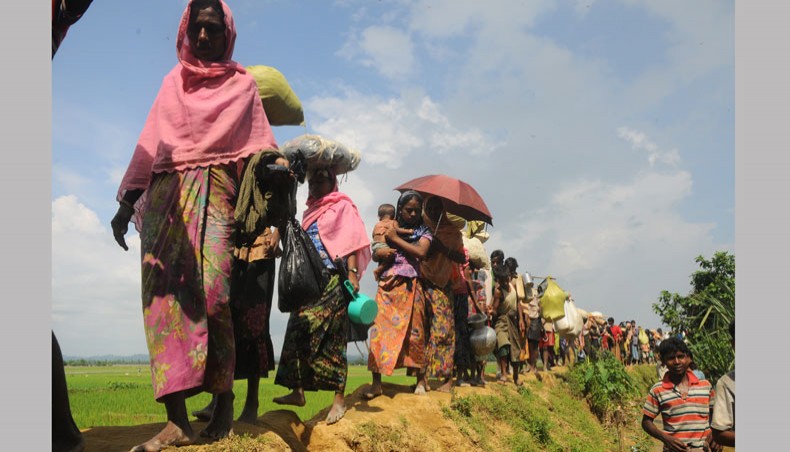Fleeing Rohingyas in dire straits
Published : 08 Sep 2017, 00:28
Thousands of Rohingyas fleeing violence in Myanmar to Bangladesh, some in makeshift camps and countless others spilling across the bordering areas, are in a dire condition without access to basic needs like shelter, drinking water, food and medical care, reported New Age, a leading English language newspaper published from Dhaka.
The condition of thousands, who have remained stranded along the border since August 25 when the violence erupted in Rakhine state in the neighbouring country, is still worse as they are living under the open sky or making shelter with plastic sheets to save themselves from scorching heat and monsoon rains.
According to locals, these Rohingyas virtually are starving as only a meagre amount of dry food is being supplied to them by national and international humanitarian aid providers and local people.
Leaders of Rohingyas at registered and unregistered camps said there camps are overcrowded with new entrants and they were failing to accommodate them at their shelters or provide foods for so many people for day after day.
UN refugee agency UNHCR Bangladesh and local administration said that they were struggling to cope with influx in term of providing food, shelter, sanitation and treatment facilities.
The ongoing violence erupted on August 25, when Arakan Rohingya Salvation Army reportedly attacked at least two dozen different police posts and checkpoints and one military base across three townships in the northern Myanmar state and the Burma Army launched ‘clearance operations,’ that left at least 400 people dead.
The insurgent group later said that they launched the attacks to pre-empt possible attacks by army and security forces on the Rohingyas.
UN refugee agency UNHCR estimated on Thursday that around 1,64,000 Rohingyas fled to Bangladesh since August 25 and Border Guard Bangladesh and foreign ministry officials estimated that another 1,00,000 persecuted ethnic minorities are waiting along the border to enter Bangladesh.


